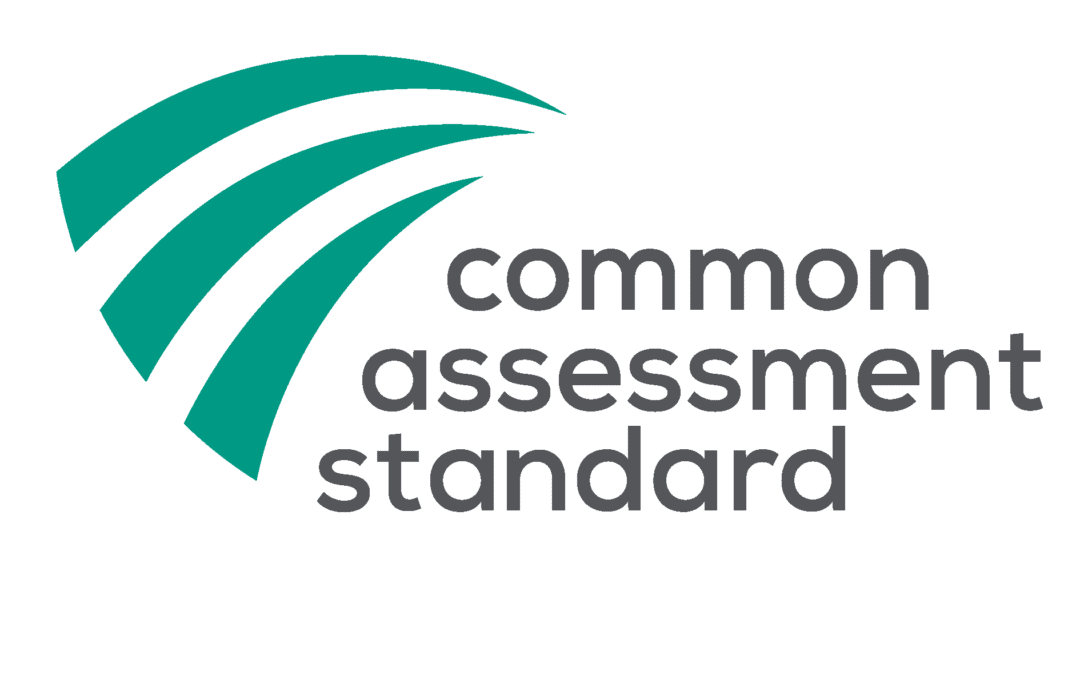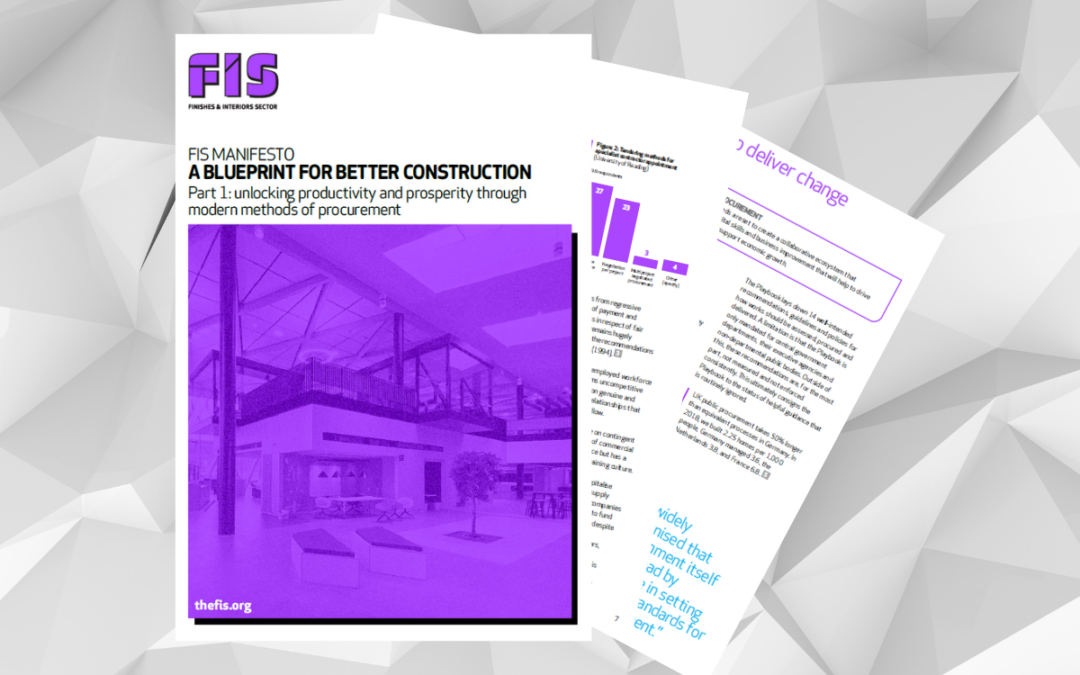
by Clair Mooney | Apr 18, 2024 | Main News Feed
Build UK has recently updated its guide to the Building Safety Regime to include all the information published in connection with the latest phase of the regime from 6 April.
The April 2024 version includes the new registers for Building Control Approvers and Building Inspectors and updates to Approved Document B, including guidance for second staircases in new residential buildings above 18 metres in height. Build UK has also produced an overview of the Golden Thread which is available to FIS members, summarising the new requirement to collate and store information for Higher‐Risk Buildings (HRBs), and the timeline shows at a glance when all the key changes take effect.
Homes England has launched the Building Remediation Hub which allows applications for the Building Safety Fund and the Cladding Safety Scheme to be processed via a single portal. The Building Safety Fund covers the replacement of unsafe non‐ACM cladding systems on residential buildings 18 metres and over in height in London, whilst the Cladding Safety Scheme funds the replacement of unsafe cladding systems on residential buildings over 11 metres (11 ‐ 18 metres in London).
Following publication of the fourth report by the Industry Safety Steering Group, Chair Dame Judith Hackitt has released a blog reflecting on the ‘huge progress’ to date and urging the industry to continue to work together to ensure the new regime is a success. The Grenfell Tower Inquiry has confirmed that publication of its Phase 2 report has been delayed and will now be published after the next anniversary of the fire in June.
Source: Build UK
Get to grips with the Building Safety Act with the new FIS E’Learning Course: An Introduction to the Building Safety Act

by Clair Mooney | Apr 15, 2024 | Main News Feed
The Office for Product Safety and Standards (OPSS), the UK’s regulator for construction products, has organised a webinar to help industry better understand the Building Safety Act and the role of the OPSS.
The webinar, scheduled for 10am – 12noon on 22 April, will be chaired by Peter Caplehorn, CEO of the CPA and co-chair of the CLC’s Building Safety workstream, and includes Louise Barr, Deputy Director Construction Products DLUHC, Duncan Johnson, Deputy Director Construction Products OPSS, and Adam Turk, CEO of Siderise and future Chair of the CPA.
To register for the free event, please follow this link.

by Clair Mooney | Apr 12, 2024 | Main News Feed
The Building Safety Act (BSA) is the most significant piece of new legislation for construction in a generation. It will fundamentally change the way in which buildings are designed, constructed and maintained. It heralds a new regulator, regulates for competence, adds additional rigour to enforcement, calls for more detailed records to be kept of what was built, by whom and how and introduces compliance Gateways for Higher Risk Buildings.
Whilst the Act itself was introduced in 2022, the 6 April 2024 marked the end of the transitional periods and the new regime is now fully in force. This includes amendments to the core Building Regulations and a suite of new secondary legislation with new defined responsibilities for all working on the design and construction of buildings, new regulatory procedures and enforcement powers and tighter processes (the Gateways) for Higher Risk Buildings.
In the first operating week FIS has launched a new online training course designed to introduce the basic concepts of the Building Safety Act and support individuals working in the finishes and interiors sector understand the implications of these changes on them. Members have access to this course, which has been designed to be user-friendly and guide members through the new compliance landscape. The course is divided into nine chapters:
- An overview of the Building Safety Act 2022
- What is a Higher Risk Building and when does work fall under the stricter regime?
- An introduction to Gateways and new expectations
- PEOPLE: Duty Holders and Competence Management Plans
- PROCESS: Change Control and Mandatory Occurrence Reporting
- PRODUCT: Safety Critical Products and Evidencing Performance
- Managing the Golden Thread
- Defective Premises Act and other Sanctions
- Summary and Recommended Actions
It includes with an end test and FIS will issue CPD certificates to those completing the course (and passing the test). Learners can learn at their own pace and FIS is on hand to answer any questions that arise.
Commenting on the launch of the course, FIS CEO Iain McIlwee stated:
“This is a really important new chapter for our industry and we hope that this course helps members turn the page effectively. The advantage of delivering it in this way is that the content is agile and we can evolve as we learn more about the regulations are being applied in the real world. There remains some uncertainty and undoubtedly there will be some challenges as the rubber hits the road and the new enforcement regime beds in. As well as encouraging members to take the course we are inviting feedback and hopefully it will generate a wave of questions that we can help clarify and/or work to find the answers with the regulator.”
Members can register for the course here.

by Clair Mooney | Apr 11, 2024 | Main News Feed
The Cabinet Office has published Procurement Policy Note 03/24 which removes reference to PAS 91 meaning the Common Assessment Standard should now be used across the public sector. Following the withdrawal of PAS 91 by BSI last year, central Government departments and wider public sector bodies can only use the Common Assessment Standard for pre‐qualifying suppliers for construction works contracts. The changes to the PPN must be implemented by contracting authorities within three months, and it is another significant step forward for the Common Assessment Standard, which will help to reduce duplication for the supply chain whilst streamlining public sector procurement.
The Common Assessment Standard has reached a tipping point over the last 12 months, with a growing list of contractors and clients specifying it and more than 18,500 companies certified against it by five Recognised Assessment Bodies. It is also being updated to ensure it can be used to demonstrate companies have the organisational capability to fulfil their roles under the Building Safety Act.

by Clair Mooney | Apr 10, 2024 | Main News Feed
CITB has set up a ‘New Entrant Support Team’ to assist registered members with taking on Apprentices and new entrants from inception to completion and will cover
Recruitment
The team will signpost you to useful employment resources and help advertise your apprenticeship vacancy on Talentview to attract potential candidates and let them find you – all for free, helping you get the right apprentice.
CITB Funding
The team will ensire you’re set up to receive CITB apprenticeship grants:
• Attendance grant: £2,500 (per year, per apprentice)
• Achievement grant: £3,500 (on successful completion of the apprenticeship).
Admin/paperwork (including Government Funding)
You will receive help with the paperwork, liaising with the training provider, setting up your Government Digital Account and more so you can focus on the job.
Retention
The team will keep in touch to make sure you have the support you need to help your apprentice achieve and become a fully-fledged employee on completion.
More information is available here.

by Clair Mooney | Apr 9, 2024 | Main News Feed
FIS has today issued the first part of the FIS Manifesto, A Blueprint for Better Construction: Delivering Change in the Finishes and Interiors Sector.
This document, the first in a series of three policy documents sets down FIS views on near- and long-term policy levers that will support transformation in the sector. The Manifesto draws heavily on recent research with the University of Reading on Procurement and Contracting, It is less focussed on the macro-economic picture than the Chancellor’s Budget, instead zoning in on the pressing business challenges which beset the specialist construction sector set against four key headings.
- Public Sector Procurement reform led by a more ambitious Construction Playbook. This needs to be backed by a consistent effort to measure outcomes.
- Eliminate unreasonable risk transfer by enforcing standard form contracts that are aligned with supply chain insurance.
- Revisit the Construction Act to simplify payment, reform retention and extend enforcement powers.
- UK Construction Products Marking rules must be aligned to those for other products to support investment in new testing.
Commenting on the launch of this document, FIS President Philip Brown stated:
“This document draws together a lot of work that the FIS team has been doing through our daily engagement with members. For an organisation to have a strong voice, it must carry a strong mandate and this is what we are seeking here. We have a unique opportunity with Building Regulatory Change and an awakening on Sustainability already adding momentum to transformation. Now is the time to rally the construction voice, to unite our community around a number of key simple statements. The main focus is Policy levers, but it should complement our “Empowering the Responsible No” campaign highlighting areas where clients, including Government have unreasonable and damaging expectations that are ultimately undermining the sector.”
FIS CEO Iain McIlwee added:
“This Manifesto draws together the key challenges and policy levers that identified through our research and wider engagement with members. The essence of this document is simple, but we do not underestimate the scale of the challenge.
My hope in setting these points down with explanation and specificity that we are moving beyond the who and why and starting to get into the what, when and how. We will be encouraging members to engage with their local representatives to carry this points forward and will be sharing with officials and politicians as well as colleagues from across construction to ensure our next Government are clear of the actions they need to take to unlock the full potential of our sector and the broader construction industry.”
The manifesto is available to download here






